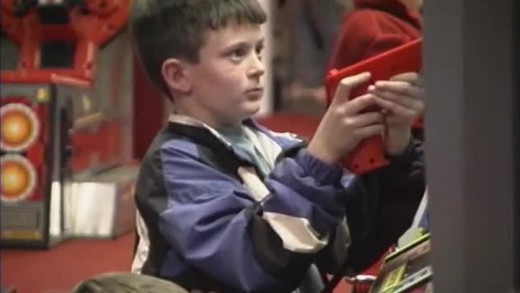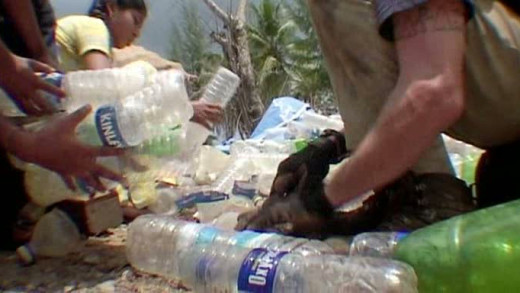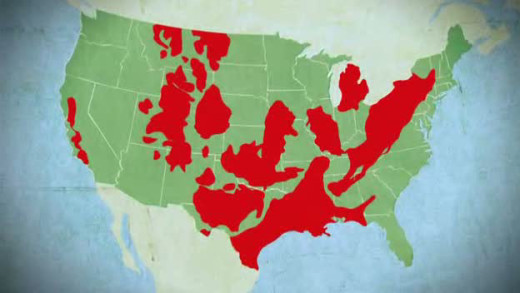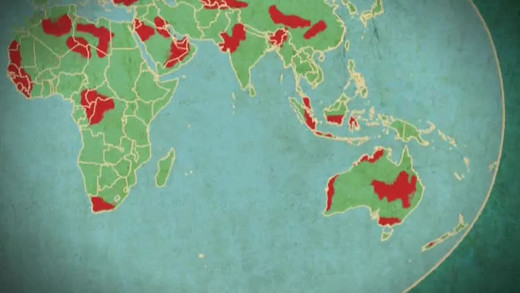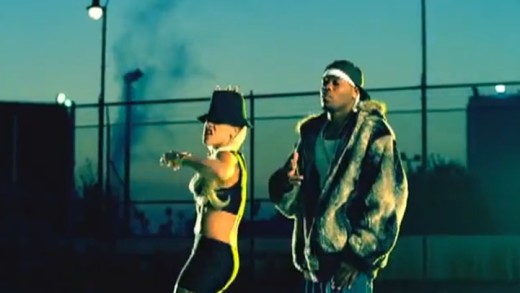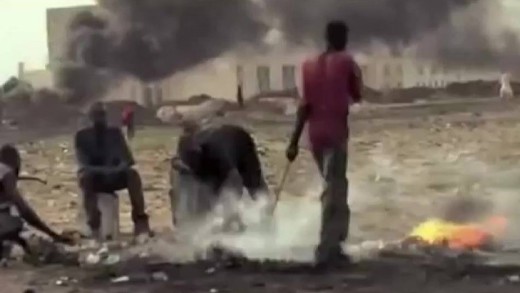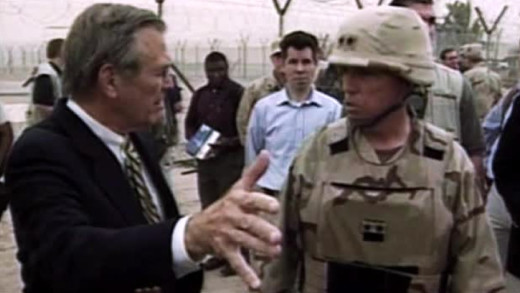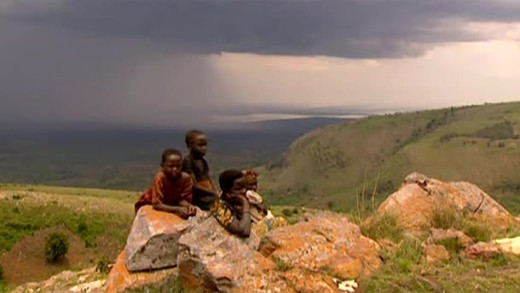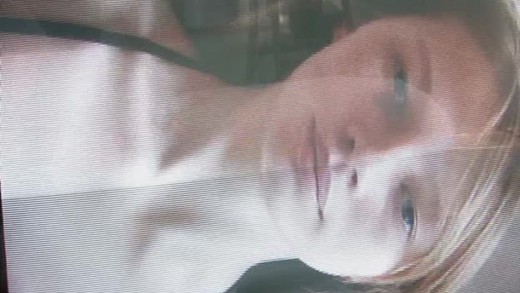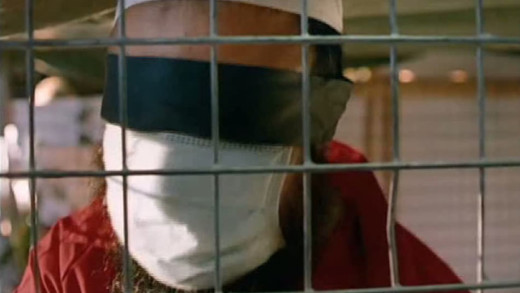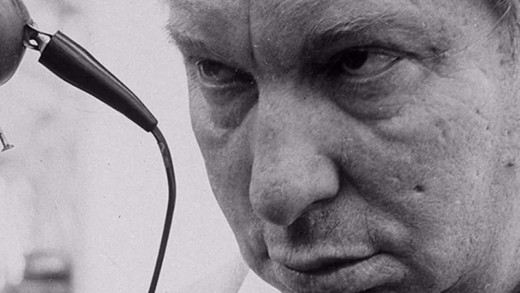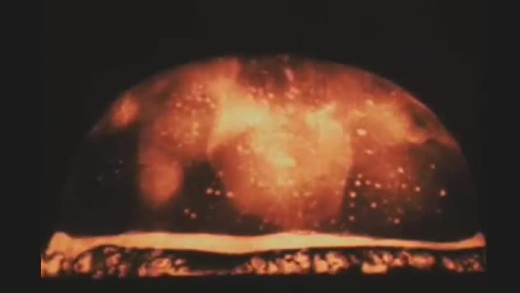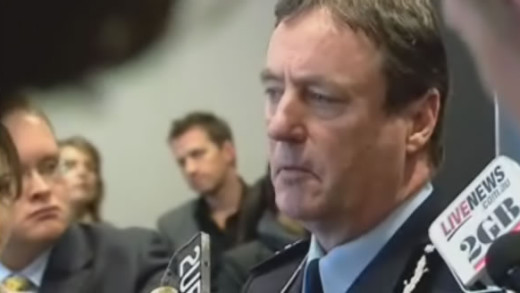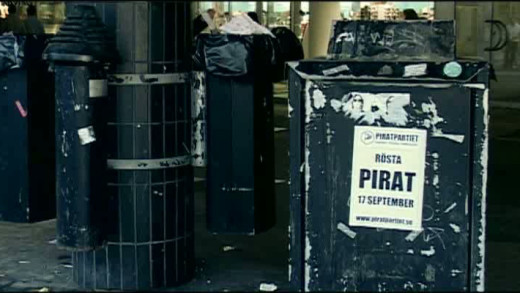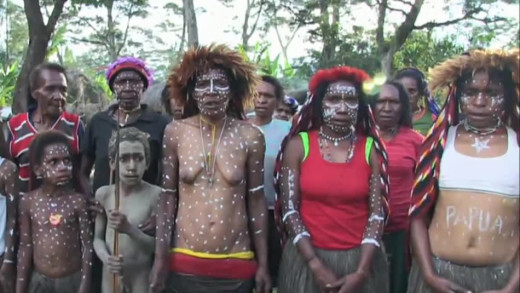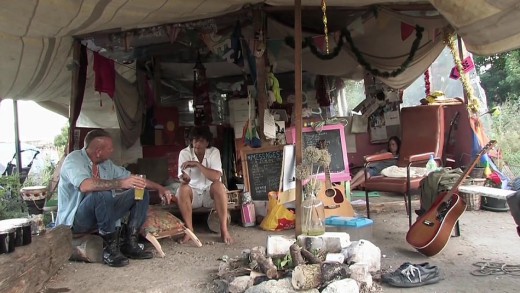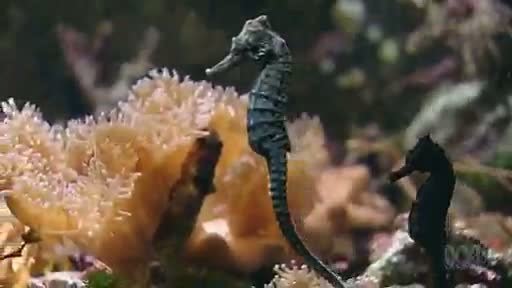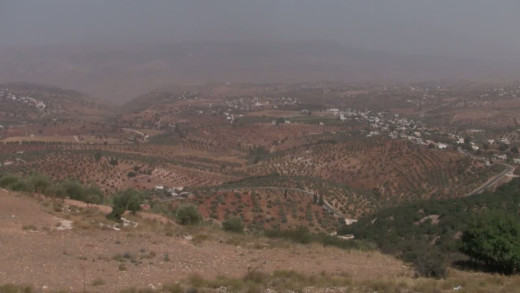90% of the consumer products are manufactured overseas, delivered by ship. Likewise with individual supplies, assembly parts, and even transportation oil itself. The shipping industry is the core of the globalised economy. Yet this industry remains largely obscure and unquestioned. As modern ships are too large to fit in traditional city harbours, they've moved out of the public eye, behind extensive barriers and security check points. Freightened: The Real Price of Shipping aims to open up this hidden world. What pulls the strings in this multi-billion dollar global business? To what extent does it control policy makers? How does it affect the environment above and below the water-line? And what's life like for modern seafarers? Through journeys over many oceans, Freightened is an investigation the hidden machinations of globalised shipping, revealing its ubiquitousness but fragility, consequences and future.
On 11th March 2011, a 9.0 magnitude earthquake unleashed a devastating tsunami destroying whole Japanese towns and villages. It also hit the Fukushima Daiichi nuclear power plant, damaging four reactors and leaking radiation. As the toxic fallout affects the health, safety and livelihood of millions, Japan faces its biggest-ever backlash towards nuclear power. Anti-nuclear activism in Japan has been on the rise along with calls for changes in energy policies generally. And from being the world's third-highest user of nuclear energy, the country now has only five of its 54 reactors working, but lengthened the time-span of its oldest reactors by 20 years. What's going on?
At the time of making this film, the year 2000, computer games represented a $6 billion a year industry, and one out of every ten households in the United States owned a Sony Playstation—numbers that have no-doubt since skyrocketed. Back then, children played an average of ten hours per week—a stat also since to have increased today—and yet, despite capturing the attention of millions of these kids, video games remain one of the least scrutinized cultural industries. Game Over seeks to address this fastest growing segment of the media, through engaging questions of gender, race and violence. Game Over offers a much needed dialogue about the complex and controversial topic of video game violence, and is designed to encourage viewers to think critically about the games they play.
Imagine a home that heats itself, that provides its own water, electricity and spaces to grow food. One that needs no expensive technology, that recycles its own waste and that can be built anywhere, by anyone, out of garbage. Literally. Thirty years ago, architect Michael Reynolds imagined such a home and then set out to build. Today, there are strong communities of people living in these homes throughout the world, but all doesn't come without the constant resistance and hindrance from government and big business which are rightly threatened...
America's largest domestic natural gas drilling boom is in full swing and the Halliburton corporation claims it has refined a technique called 'hydraulic fracturing' that extracts natural gas in a "safe and environmentally friendly way". But upon examination, film-maker Josh Fox uncovers a trail of secrets, lies and first-hand evidence of intense water contamination and devastating environmental destruction...
Gasland Part II
Gasland Part II follows on three years later, to continue documenting how the stakes have been raised on all sides in one of the most devastating environmental issues rapidly spreading the globe. This sequel further enriches the argument that the gas industry's portrayal of natural gas as a clean and safe alternative to oil is a lie, where in fact fracked wells inevitably leak over time, and vent exuberantly more potent greenhouse gasses such as methane in cumulative effect, not to mention the continued string of cases of severe water contamination across the United States and even cases as far away as Australia. Gasland Part II follows deeper into these happenings, revealing yet more of an entrenched corporate collusion in the pursuit of exploiting dwindling 'natural resources'...
Social media networks purport the ability to interact with culture—talking directly to artists, celebrities, movies, brands, and even one another—in ways never before possible. But is this real empowerment? Or do marketing companies still hold the upper hand, as before? Generation Like explores how the perennial quest for identity and connection is usurped in the pervasive game of cat-and-mouse by vast corporate power in the extensive machine for consumerism that is now the online environment. The audience becomes the marketer; buzz is subtly controlled and manipulated by and from real-time behavioural insights; and the content generated is sold back to the audience in the name of participation. But does the audience even think they're being used? Do they care? Or does the perceived chance to be the 'next big star' make it all worth it?
Generation M looks at misogyny and sexism in mainstream media, exploring how negative definitions of femininity and hateful attitudes toward women get constructed and perpetuated throughout popular culture. The film tracks this across a broad and disturbing range of media phenomena: from the hyper-sexualization of commercial products aimed at girls, to the explosion of violence against women in video games aimed at boys; from the hysterical sexist rants of popular hip-hop artists and talk-radio shock-jocks, to the continually harsh, patronizing caricature of women found in virtually every area of media. Generation M posits the consequences of misogyny in all of its forms, showing that when we devalue more than half the population based on gender, we harm everyone—boys and men, women and girls alike.
Generation Wealth is a visual history of the materialistic, image, and celebrity-obsessed culture, explored through the work of photographer and filmmaker Lauren Greenfield. Part historical essay, part autobiographical, Greenfield puts the pieces of her life's work together to reveal the pathologies that have created the richest and most unequal society the world has ever seen. Spanning consumerism, beauty, gender, body commodification, aging, and sex, Generation Wealth unpacks the global boom-bust economy, the corrupt American Dream and the human costs of capitalism, narcissism and greed.
In the "race to feed the planet", scientists have discovered how to manipulate DNA and produce what they claim are stronger, more disease-resistant crops. However, fears that Genetically Modified Food may not be safe for humans or the environment has sparked intense protest. Are we participating in a dangerous global nutritional experiment? This film asks is the question -- is the production of genetically modified food a panacea for world hunger or a mass poisoning of the worlds food supply?
A group of graduate journalism students from the University of British Columbia travel to the outskirts of Ghana as part of a global investigation tracking the shadowy industry of e-waste that's causing big environmental problems around the world. Their guide is a 13-year-old boy named Alex. He shows them his home, a small room in a mass of shanty dwellings, and offers to take them across the dead river--which is literally dead--to a notorious area called Agbogbloshie which is one of the world's unseen e-waste dumping grounds. Hundreds of millions of tons of waste are funnelled here each year, with more to come as the consumer boom of computers and gadgets increases across the globe--unless drastic action changes the flow of waste and addresses the terrible conditions many have to endure for the technocracy of the West.
Ghosts of Abu Ghraib examines the sexual abuse, torture, rape, and murder of detainees at Abu Ghraib prison at the hands of US military police in the fall of 2003. The film shows how the abuse was systemic of the military-intelligence complex, flawing the "bad apples" theory that was sprouted through the media at the time. By making reference to Stanley Milgrim's obedience experiments of the 1960s, the film asks: How can ordinary people take these actions? And what orders came from the chain of command?
Ghosts of Rwanda marks the 10th anniversary of the genocide in Rwanda—a state-sponsored massacre in which some 800,000 Rwandans were methodically hunted down and murdered, as the United Nations and other states refused to intervene. The film examines the social, political, and diplomatic failures that converged to enable the genocide to occur. Through interviews with key government officials, diplomats, soldiers, and survivors of the slaughter, Ghosts of Rwanda presents first-hand accounts of the genocide from those who lived it—the diplomats on the scene who thought they were building peace only to see their colleagues murdered; the Tutsi survivors who recount the horror of seeing their friends and family slaughtered by Hutu friends and co-workers; and the UN peacekeepers in Rwanda who were ordered not to intervene in the massacre happening all around them.
Girl Model offers a glimpse into the hall of mirrors that is the modelling world as it interfaces with other industries and other countries. The film follows Ashley—a deeply ambivalent former-model who is now a scout and scours the Siberian countryside looking for 'fresh faces' to send to the Japanese market; and one of her 'discoveries,' Nadya, a thirteen year-old plucked from the Siberian countryside and dropped into the centre of Tokyo with promises of a profitable career. What entails is the opening of a can of worms that isn't easily solved in one sitting—a thriving and curiously sinister modelling industry that spans the globe, luring everywhere with pretences of wonder, success and riches. But the realities are harsh. The fashion industry can look glamorous from the outside, but its insides are, at the very least, deceptive and sinister; and the myths run deeply entrenched in the culture, constantly promulgating new, young recruits. This 'meat market,' a prelude to sex trafficking, is creepy, ugly, and preys on the young and vulnerable. Can the spell be broken?
Moving Beyond Myth focuses on the sexual dilemmas and difficult life choices young girls face as they come of age in contemporary American culture. Challenging long-held myths about girlhood, the film draws on the insights of girls themselves to explore and shed light on their actual lived experience as they navigate an increasingly hyper-sexualized society. The voices of a diverse range of girls are supplemented with accessible analysis from leading experts on sexuality and society.
In the wake of the attacks of September 11th 2001, the United States opened a prison camp in Guantánamo Bay, Cuba. The hundreds of prisoners detained there are not afforded prisoners of war status according to the Geneva Convention, they are labelled "unlawful combatants" and are held indefinitely and tortured with no right to a lawyer or a trial. Gitmo -- The New Rules Of War cuts through the official political rhetoric surrounding Guantánamo to expose what really goes on at the United States central gulag in the 'war on terror'.
Globesity exposes the explosion of global obesity by following how fast food corporations have infiltrated countries where just a few decades ago hunger was a headline health concern. The film travels to China where the consumption of sugar has skyrocketed, to Brazil where corporations such as Nestlé have fundamentally altered traditional diets, to India where it’s predicted that 100 million people will be suffering diabetes in the not-too-distant future, and on to Mexico--the biggest consumer of soft drink in the world--where diabetes is already the number one killer. The film is one illustration of many of how vast corporate operations further destroy traditional communities and usurp basic needs like food...
Going Clear
Going Clear: Scientology and the Prison of Belief profiles eight former-members of the cult of Scientology, leading to a series of revelations of the history of systematic abuse, manipulation, and betrayal in the organisation by Scientology officials and celebrity figures. The film highlights the origins of Scientology, from its roots in the mind of founder L. Ron Hubbard and successor David Miscavige, to its rise in popularity in Hollywood and beyond. The result is a record of great harm, paranoia, abuse, the vast accumulation of wealth, and a lust for power and control.
Golden Rule presents a picture of today's political economy interpreted through the framework of the "Investment Theory of political Parties". The theory, first articulated in 1983 by Thomas Ferguson, is largely based on quantitative analysis of activity in the stock market and its relationship to politics--that is to say that "elections are moments when groups of investors coalesce and invest to control the state." The film takes this theory and tests it against developments in the political and social spheres of recent decades, right up to the election of Barack Obama in the United States in 2008...
The Australian Federal Police--the glamour police force that was set-up after the Sydney Hilton Hotel Bombing in 1978--has enjoyed consistent showers of praise by politicians and the public ever since it's inception. However, the once-lionised AFP is now being ridiculed for bungling, excessive secrecy and collusion after the catastrophic failings of the "terrorism case" against Dr Mohammed Haneef. Good Cop, Bad Cop reveals how the Haneef case is a symptom of the deep cultural problems that beset the AFP...
Good Copy Bad Copy is a documentary about the current state of copyright and culture in the context of Internet, peer-to-peer file sharing and other technological advances. Featuring interviews with many people with various perspectives on copyright, including copyright lawyers, producers and artists, Good Copy Bad Copy documents that "creativity itself is on the line" and that a balance needs to be struck, or that there is a conflict, between protecting the right of those who own intellectual property and the rights of future generations to create...
Goodbye Indonesia investigates one of the world's most forgotten conflicts--the West Papuan struggle for independence. When the Dutch decolonised their empire after the Second World War, they handed it all to the emergent country of Indonesia--all except the territory of West Papua, which forms one half of New Guinea, the second largest island on Earth. This remarkable landmass split neatly by colonial powers into West Papua and Papua New Guinea, is like few other places in the world...
In 2002, quietly and behind closed doors, the Internet giant Google began to scan millions of books in an effort to create a privatised giant global library, containing every book in existence. Not only this, but they claimed they had an even greater purpose--to create a higher form of intelligence, something that HG Wells had predicted in his 1937 essay "World Brain". Working with the world’s most prestigious libraries, Google was said to be reinventing the limits of copyright in the name of free access to anyone, anywhere. But what can possibly be wrong with this picture? As Google and the World Brain reveals, a whole lot...
Two years before the Occupy movement sprang forth in New York, a small group of land-rights activists occupied a piece of disused land in west London to create an "alternative model of moneyless, sustainable living" which they labelled, the Eco-Village. Echoing the dynamics of hippy communes in the United States decades earlier, Grasp the Nettle follows the often bewildering and even amusing actions of this group through many moments of idyllic beauty, as they use local trees and recycled rubbish to build small homes, go dumpster diving, build a manually operated shower and compost toilet, create a local seed bank, and help distribute dumpstered sandwiches to the city's homeless. But the Eco-Village quickly becomes something other than just an idealistic experiment in political protest. It begins to attract vulnerable people who already live on the margins of society and need help: the homeless, the unemployed, alcoholics, the mentally ill. Some of them are invited to stay, but others cause a ruckus and harm the group. Tensions spark as the community grapples to deal with the increasing chaos while trying to stave off the fast-approaching prospect of eviction, through the ideologies of withdrawal, dropping out, freemanism and spirtuality. Grasp the Nettle is hence a valuable reflection of the efficacy of this type of Wandervogel-style activism, where lack of goals and support infrastructure, a diverse array of internal conflicts and horizontal hostility can be the ultimate undoing of idealistic and much-needed political resistance movements.
The Great Barrier Reef is one of the great natural wonders of the world. But now the area faces threats not only by changes to the climate, but by direct assaults from industry going to any lengths to extract Coal Seam Gas. This report travels to Queensland to show how at least six major port developments -- either being planned or currently underway -- are directly putting The Great Barrier Reef in jeopardy...
Greening The Desert follows permaculturalist Geoff Lawton and his team to the Jordan desert where they transform 10 acres of the arid desert into a lush, thriving, food producing garden. In a massive transformation, the team develops a system to harvest rainwater, creates swells with over a foot of mulch and designs the system to reduce salt levels in the soil dramatically—only a few miles from the Dead Sea.
Ground Noise And Static is a video report on the protests that occurred in connection with the Democrat and Republican National Conventions in 2008. Corporate media would cover the platitudes and posturing of the politicians, but this film is interested in something else -- a story hidden in plain sight, told from the perspective of activists...
As the first film to emerge from the women's movement in the early 1970s in the United States, Growing Up Female focuses on the socialisation of women at the time, traversing cultural themes through the personal stories of six women and girls. By capturing the way women were viewed by society, men, and themselves, Growing Up Female documents the female experience from a female perspective.


